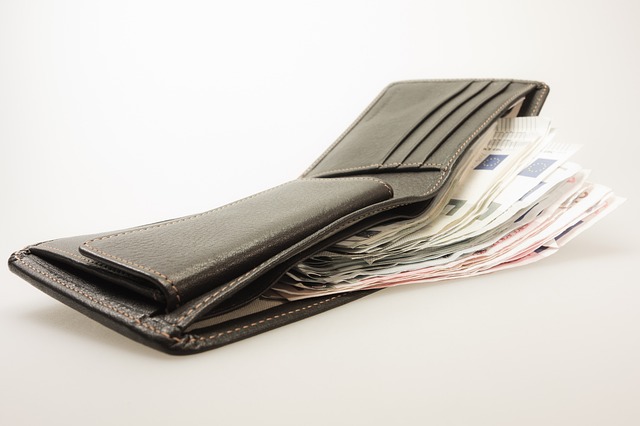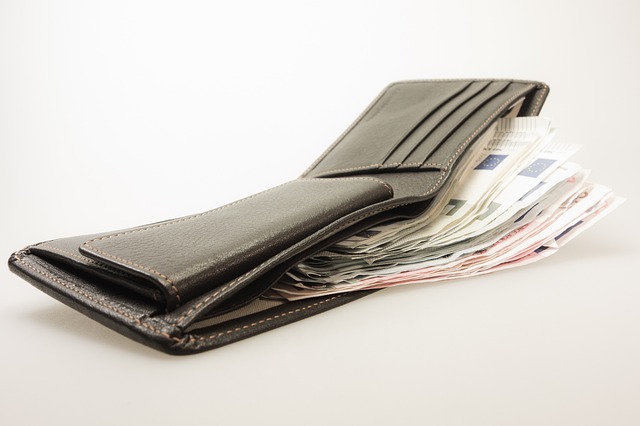The Ultimate Guide to Crypto Wallets
Author: Jameson Richman Expert
Published On: 2025-02-06
Prepared by Jameson Richman and our team of experts with over a decade of experience in cryptocurrency and digital asset analysis. Learn more about us.
In recent years, cryptocurrencies have transformed the financial landscape, providing individuals and institutions with new ways to conduct transactions. As the use of digital currencies grows, the importance of securing these assets cannot be overstated. This is where crypto wallets come into play. This article will delve into the world of crypto wallets, exploring their types, features, security measures, and much more.

What is a Crypto Wallet?
A crypto wallet is a digital tool that allows users to store, send, and receive cryptocurrencies. Unlike traditional wallets that hold physical currency, crypto wallets do not store the coins themselves. Instead, they store the public and private keys that are crucial for managing your coins on the blockchain.
Types of Crypto Wallets
Crypto wallets primarily fall into two categories: hot wallets and cold wallets. Understanding the differences between these two will help you choose the right one for your needs.
Hot Wallets
Hot wallets are connected to the internet, allowing for easy access and quick transactions. They are user-friendly and typically offered by exchanges like Binance and MEXC. However, being online makes them more susceptible to hacking and other cyber threats. Examples of hot wallets include:
- Web wallets
- Mobile wallets
- Desktop wallets
Cold Wallets
Cold wallets, on the other hand, are stored offline, making them much safer against online attacks. They are ideal for storing large amounts of cryptocurrency for extended periods. Types of cold wallets include:
- Hardware wallets
- Paper wallets
Choosing the Right Wallet
When selecting a crypto wallet, consider the following factors:
- Security: Look for wallets with robust security features such as two-factor authentication and strong encryption methods.
- User Experience: A wallet should be easy to use, especially for beginners. User-friendly interfaces can significantly enhance your experience.
- Compatibility: Check if the wallet supports the cryptocurrencies you plan to hold.
- Control: Some wallets give you complete control over your private keys while others hold them on your behalf. Opt for a solution that aligns with your risk tolerance.

Setting Up a Crypto Wallet
The process of setting up a cryptocurrency wallet varies depending on the type you choose. Here’s a quick guide:
Web Wallet Setup
To set up a web wallet, follow these steps:
- Choose a reputable exchange like Binance or MEXC.
- Register for an account by providing the required information.
- Enable two-factor authentication for added security.
- Create and store your wallet password securely.
- Fund your wallet by purchasing cryptocurrency through the exchange.
Hardware Wallet Setup
For a more secure option, consider a hardware wallet:
- Purchase a hardware wallet from a reputable manufacturer.
- Connect the wallet to your computer, usually via USB.
- Follow the manufacturer’s instructions to set it up.
- Securely store your recovery seed phrase, which will allow you to recover your wallet if needed.
Security Tips for Crypto Wallets
Keeping your crypto safe should be a top priority. Here are some essential security tips:
- Always enable two-factor authentication on your wallet and exchange accounts.
- Keep your software up-to-date to protect against vulnerabilities.
- Use strong, unique passwords and change them regularly.
- Be cautious of phishing attacks; only access your wallet from official websites.
- Consider using a cold wallet for long-term storage of significant amounts of cryptocurrency.
The Importance of Backups
Backing up your wallet is essential for protecting your assets. If your wallet is lost, damaged, or hacked, having a backup can ensure you don’t lose your funds. Backups typically involve saving your recovery phrase or exporting your private keys to a secure location.

Common Crypto Wallet Features
Different wallets come with various features. Some common ones include:
- Multi-Currency Support: Supports various cryptocurrencies, allowing you to manage all your assets in one place.
- In-built Exchange: Some wallets have integrated exchanges for easy trading without leaving the wallet interface.
- Transaction History: Track your transaction history for personal record-keeping and budgeting.
- Notifications: Real-time alerts for transactions, price changes, and security notifications.
Conclusion
As cryptocurrencies continue to garner attention and adoption, understanding how to securely store and manage them using crypto wallets is critical. By selecting the right type of wallet and employing best practices for security and backups, you can significantly mitigate risks and enjoy the benefits of the digital currency revolution. Whether you are using an online wallet through a platform like Binance or managing long-term storage with a hardware wallet, take the time to research and educate yourself about these crucial tools in the crypto space.